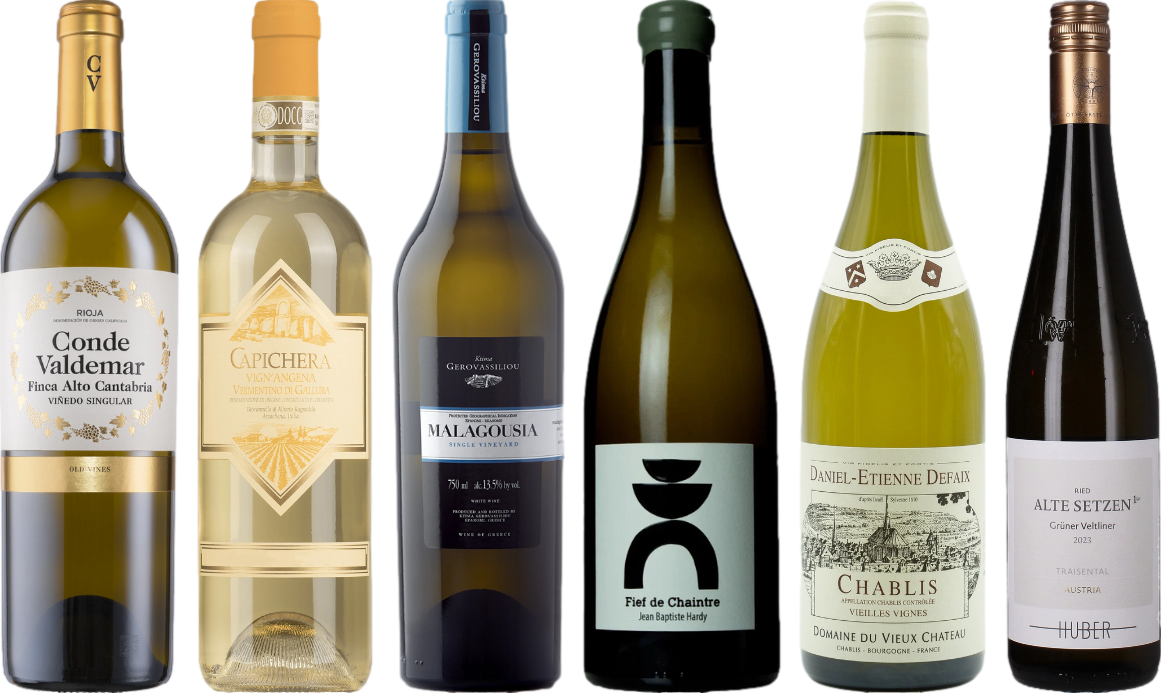



If you’re seeking a delightful experience, I highly recommend exploring Sauvignon Blanc from New Zealand. Its zesty acidity and vibrant citrus notes make it a perfect companion for seafood dishes or fresh salads. The Marlborough region produces some of the best examples, showcasing the characteristic grapefruit and herbal nuances that tantalize the palate.
Another excellent choice is the ever-reliable Pinot Grigio from Italy. This varietal, particularly from the Veneto region, offers a light and refreshing profile with hints of pear and green apple. It pairs beautifully with light pasta dishes or antipasto platters, enhancing your dining experience.
Chardonnay, especially from Burgundy, is a fantastic option for those who appreciate a more complex flavor profile. Look for a Chablis, which provides a mineral-driven elegance with notes of lemon and flint. This wine complements richer dishes like roasted chicken or creamy risottos, elevating the meal.
Lastly, consider the unique character of Grüner Veltliner from Austria. This varietal is known for its peppery spice and stone fruit flavors, making it a versatile partner for Asian cuisine or grilled vegetables. Its refreshing acidity ensures a lively finish, making every sip enjoyable.
Understanding the Characteristics of Dry White Wines
To appreciate the nuances of these beverages, focus on their defining traits. Typically, they exhibit low residual sugar, resulting in a crisp and refreshing profile. Look for examples that balance acidity and fruitiness; this harmony enhances food pairings.
Key Flavor Profiles
- Citrus fruits: Common notes include lemon, lime, and grapefruit.
- Stone fruits: Varieties may present hints of peach, apricot, or nectarine.
- Herbal undertones: Expect elements like grass, thyme, or basil, especially in Sauvignon Blanc.
- Minerality: Wines from regions such as Chablis often showcase a stony character.
Pairing Suggestions
- Seafood: Oysters, grilled fish, and shellfish complement the bright acidity.
- Poultry: Roasted chicken or turkey pair beautifully with the crispness.
- Salads: Light vinaigrettes enhance the freshness of these drinks.
- Cheeses: Soft cheeses like goat cheese or feta work well with the herbal notes.
Exploring these characteristics will lead to a deeper understanding and enjoyment of these delightful beverages. Remember, the right choice can elevate your dining experience significantly.
Popular Varieties of Dry White Wines
Chardonnay stands out for its versatility. This grape can produce a spectrum of flavors, from crisp green apple and citrus to more complex notes of butter and oak, depending on the winemaking techniques. Look for unoaked versions for a fresher taste.
Sauvignon Blanc is another favorite, known for its zesty acidity and vibrant aromas of lime, green bell pepper, and gooseberry. Regions like Marlborough in New Zealand create some of the most exciting expressions of this varietal.
Pino Grigio
Pino Grigio, particularly from Italy, is celebrated for its light body and refreshing profile. It often showcases pear, apple, and floral notes, making it an excellent choice for warm weather and light dishes.
Riesling
Riesling can be deceptive, as it varies from sweet to bone-dry. Opt for a trocken (dry) Riesling from Germany for a crisp experience, highlighting minerality and stone fruit flavors.
Other noteworthy selections include Albariño from Spain’s Rías Baixas, which offers a bright, oceanic quality, and Grüner Veltliner from Austria, characterized by its peppery notes and refreshing acidity. Each of these selections provides unique tasting experiences that pair beautifully with various cuisines.
Regions Known for Producing Dry White Wines
France’s Loire Valley stands out for its exceptional Sauvignon Blanc and Melon de Bourgogne, offering crisp, refreshing options perfect for various cuisines. The Sancerre and Pouilly-Fumé AOCs deliver remarkable examples of this varietal, renowned for their minerality and vibrant acidity.
In Italy, the regions of Friuli-Venezia Giulia and Alto Adige are celebrated for their remarkable Pinot Grigio and Sauvignon Blanc. These areas produce aromatic, zesty versions that beautifully complement seafood dishes, showcasing the unique terroir of northern Italy.
California’s Napa Valley and Sonoma County are home to excellent Chardonnay, often characterized by their rich flavors and buttery textures. Look for producers who emphasize cool-climate techniques, as they yield wines with balanced acidity and bright fruit profiles.
Germany’s Mosel and Rheingau regions excel in crafting elegant Rieslings, particularly in their trocken (dry) styles. The slate soils impart distinct minerality, making these selections ideal for pairing with spicy Asian cuisine.
Australia’s Margaret River is known for producing outstanding Semillon and Sauvignon Blanc blends. The coastal climate contributes to their aromatic complexity and crispness, making them versatile for various food pairings.
New Zealand’s Marlborough region has gained international acclaim for its vibrant Sauvignon Blanc, which showcases intense citrus and tropical fruit flavors. The cool maritime climate enhances the freshness and acidity of these wines.
Exploring these regions will reveal not only quality selections but also the diversity and expression of various grape varieties, each reflecting its unique terroir. Cheers to discovering exceptional sips!
Food Pairings with Dry White Wines
Pairing seafood with Sauvignon Blanc is a classic choice. The zesty acidity complements dishes like grilled shrimp or oysters beautifully.
Cheese and Appetizers
- Chardonnay pairs well with creamy cheeses such as Brie or Camembert.
- Crackers with goat cheese and a glass of Pinot Grigio create a delightful starter.
- For a refreshing option, pair a dry Riesling with a platter of assorted nuts and olives.
Main Courses
- Grilled chicken with lemon sauce works great with a crisp Sauvignon Blanc.
- Sea bass or halibut is elevated by a well-chilled Chardonnay.
- Pasta primavera shines with the floral notes of a dry Gewürztraminer.
For dessert, consider pairing a light fruit tart with a late harvest Riesling for a delightful contrast. Enjoy exploring these combinations for a memorable dining experience.
Tasting Notes and Flavor Profiles of Dry White Wines
Chardonnay often displays a wide range of flavors, from citrus and green apple to buttery and oaky notes, depending on its origin and production method. Regions like Burgundy yield elegant and mineral-driven expressions, while New World versions can be richer and more fruit-forward.
Sauvignon Blanc typically presents zesty acidity and herbal characteristics. Expect vibrant aromas of lime, green bell pepper, and passionfruit, particularly from regions such as Marlborough, New Zealand. The Sancerre and Pouilly-Fumé areas in France highlight its mineral qualities, often enhanced by flinty nuances.
Other Noteworthy Varietals
Pinot Grigio, especially from Italy, tends to be light and crisp, showcasing pear and citrus flavors with a refreshing finish. In contrast, its Alsatian counterpart provides more body and complexity, often revealing notes of stone fruit and spice.
Albariño, originating from Spain, captivates with its bright acidity and flavors of peach, apricot, and sea salt. This varietal is an excellent companion for seafood dishes, enhancing the dining experience with its lively profile.
Regional Influences
The terroir significantly influences flavor profiles. Regions like the Loire Valley produce wines with pronounced minerality, while warmer climates such as California may yield riper fruit flavors. Understanding these nuances can elevate your tasting experience and food pairings.
How to Properly Serve and Store Dry White Wines
Chill bottles between 45°F and 50°F (7°C to 10°C) for optimal enjoyment. Use an ice bucket filled with water and ice for rapid cooling, ensuring the perfect serving temperature before pouring. For long-term storage, maintain a consistent temperature around 55°F (13°C) in a dark, humid environment. Avoid exposure to sunlight and vibration, as these factors can compromise flavor integrity.
Use clean, appropriate glassware, preferably tulip-shaped or standard white wine glasses, which enhance aromas and flavors. Pour about one-third of the glass to allow for proper aeration. When serving, tilt the bottle slightly to avoid splashing and maintain cleanliness.
For optimal freshness, consume within a few days after opening, especially lighter varieties. Use a vacuum seal or inert gas wine preservers to extend shelf life once uncorked. Always store bottles upright after opening to minimize oxidation and preserve quality.
Regularly check the cork for signs of leakage or spoilage. If a cork appears compromised, assess the wine’s quality before serving. Understanding these practices ensures a delightful experience with each sip, enhancing appreciation for these exquisite beverages.
Exploring the Price Range of Dry White Wines
For those on a quest to discover high-quality options without overspending, the price spectrum of these beverages can be quite revealing. Generally, you can expect to find bottles ranging from $10 to $100, with exceptional selections available at various price points.
Here’s a breakdown of what you might encounter:
| Price Range | Characteristics |
|---|---|
| $10 – $20 | Often produced in larger quantities, these selections are perfect for everyday enjoyment. Look for value brands from regions like California or Chile. |
| $20 – $50 | This range introduces more complexity and terroir-driven options. Consider wines from regions such as France’s Loire Valley or Italy’s Veneto for refined taste. |
| $50 – $100 | Expect remarkable quality and distinct flavor profiles. Wines from prestigious regions like Burgundy or Napa Valley often fall within this category, showcasing the best craftsmanship. |
| $100+ | Rare and collectible bottles, often from top vineyards, can exceed this price. These are typically reserved for special occasions and discerning collectors. |
In my experience, the best approach is to explore wines across all price ranges. There are gems waiting to be discovered in every category, including value-driven bottles that can surprise you. If you’re planning a getaway, consider pairing your exploration with the best solar generator for travel trailer to enhance your adventures.
Ultimately, the joy of wine tasting lies not just in the price tag but in the stories each bottle tells and the memories created around them.







